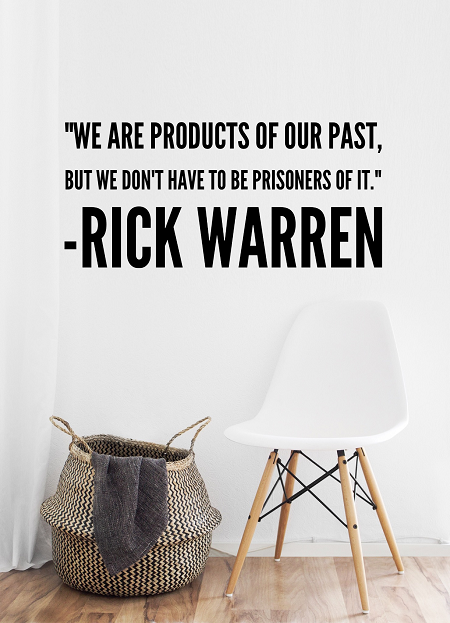Do you find it difficult to stay on task when you’re working? Do the words improving productivity leave a bad taste in your mouth not because you don’t want to know how to achieve it but because you have failed so many times at attaining it?
Is getting yourself psyched up for long stretches of work difficult or near impossible?
Then you are part of a large crowd of people who find staying productive difficult. Maintaining Productivity is hard for most, especially in today’s environment where distractions are more available than ever.
If you find it difficult to stay productive, chances are you probably have Bad Habits that are preventing you from getting to where you need to go. Look at the following list and determine if any of these bad habits relate to you.
Bad Habits Impacting Your Productivity:
Letting the Day Run You
Probably one of the biggest deterrents to your time management is letting the day run you. How intentional are you about where you spend your time? There are several great productivity apps available that can help you plan your day.
Win your day the night before by being clear on what you want to accomplish the next day. Build a habit of planning your Most Important Tasks early in the morning and commit to accomplishing those tasks first.
Playing Catch Up
Are you motivated when you are in a time crunch? Do you find yourself waiting until the last possible minute before settling down to accomplishing what needs to get done?
The habit of playing catch up will put you constantly in the Urgent mode of the time management matrix. Try to spend the majority of your time in the non-urgent but Important Quadrant. Your return on your investment of time will multiply.
Living in the Past
Is living in the past a bad habit? Of course. If you spend your time stuck in the past and what did not work, you will have less time to plan for the future and focus on the present. Your time is precious. Don’t waste it by thinking about past events that are no longer in your control.

Not Managing Your Energy Levels
Often overlooked is the importance of managing your energy levels when it comes to increasing your productivity. It is as simple as, if you don’t take care of your mind and body, your effectiveness will suffer. Although it seems simple, those who take the necessary actions to maintain high energy levels are in the minority.
We are still rushing to get things done and pushing ourselves to keep going, ignoring what our body is telling us sometimes. We sacrifice sleep once too many times not thinking about the long-term consequences.
Here are some quick wins that you can start today to help increase your energy levels:
- Start and maintain a morning exercise routine. There are huge benefits to working out in the morning.
- Learn your sleep cycle. Some people need 9 hours, others can maintain high energy levels with just 6 hours. What are your sleep patterns and what works for you? Now, try to respect it as much as possible.
- Perform your most important tasks when your energy levels are most high.
- Maintain a diet that will support your needs. Eating a high carb meal right before an important presentation may not be the best thing for you.
Your Environment
In addition to maintaining high energy levels, is the need to determine what is draining you of your energy. Are you constantly finding yourself in situations that leave you feeling depleted? Sometimes, it’s as simple as looking at the environment you find yourself in.
If you surround yourself with negative people, you, in turn, will condition your mind to stay in the negative. What you focus on expands and your environment plays a huge role in determining what you focus on.
Getting Easily Distracted
While working on a task, do you check your emails every time you hear the incoming ping?
All you have to do is look around and see people constantly pick up their phone to check what they may have missed in a variety of settings; meetings, restaurants and even church. With all the constant stimulation that is available today, it is hard not to get distracted.
Some tips that may help:
- Use the Pomodoro technique to help you stay focused.
- Close off any open apps including email.
- Put your phone on silent when working on an important project.
- Work where you won’t be bothered.
Shiny Object Syndrome
At its core, shiny object syndrome (SOS) is a disease of distraction. It is the business equivalent of a small child chasing after shiny objects. Once they get there and see what the object is, they immediately lose interest and start chasing the next thing.
For adults, rather than literal shiny objects, SBOs may be business objectives, marketing strategies, the newest diet fad that you change to even when you haven’t given your old diet a chance.
If you find yourself chasing after the next idea without finishing your last, you risk not completing your projects. As a leader, chasing the next great idea will only frustrate and confuse your team. How many new focuses have you created in the last 12 months without giving a chance to your last ideas?
Having No Rules for Social Networking
The time you spend on Social Networks can help you build great connections. The question you need to ask yourself is what is the ROI on your time? Are you trading in real person to person connections for online ones? Fun websites and social media sites can suck you in. Before you know you the day has gone and so has your productivity.
Multi-Tasking
The more you divide your attention, the less efficient and effective you become. Multi-tasking is no longer the behavior of choice.
No Process For Email Management
Do you look at your emails first thing in the morning? If so, then you are allowing other people’s priorities to control your schedule.
The key is not to read your emails but process your emails. If you find yourself reading and re-reading the same email more than once then you haven’t processed your emails properly.
When reading emails, it is good practice to action each email with one of the following: delete it, do it, delegate it, defer it for later. Deferring it means that you are scheduling it for a later time on your calendar or task management app. Try not to use your Inbox as a task management system. It is not as effective.
Taking Too Many Meetings
We have all been there. Sitting in a meeting wondering, “How is this going to make my job easier?”
Too many meetings are just about reviewing a laundry list of items and topics rather than a well-thought-out design that actually produces a meaningful result.
A laundry list of items can be sent and delegated through email. Instead, meetings should be about more important investments of our time. Meetings are a great opportunity to strategize about our future, innovate, collaborate, plan or solve problems while connecting with colleagues and sharing of best practices. It should be a collaboration of ideas and not a download from one person.

Over-Planning
Putting too many tasks on your to-do list and planning too many projects is a recipe for future “Overwhelm”.
Keep your to-do list to what can realistically be accomplished that day and schedule the rest. Always start with your Most Important Tasks (MIT). This should be limited to 1-2 big items that would contribute the most to your overall goal. That way even if unexpected challenges arise during the day, you have at least accomplished your MIT tasks.
Waiting for it to Be Perfect
If you wait for everything to be perfect before launching or communicating an idea, you are unnecessarily increasing the timeline needed to complete.
Perfectionism is another common offender to productivity. It leads to having unrealistically high work standards and being thrown off balance when things don’t go exactly as you’d like.
With unrealistic work standards, you risk falling behind schedule creating an overload of tasks. Perfectionists can also get discouraged if things don’t go exactly as planned.
Instead of,
Ready? Aim. Fire.
Go for,
Ready? Fire. Aim.
Get your idea out there and modify as needed.
Not Having a Work Routine or Process
A big step in improving your productivity is in creating a routine or process that works for you. I have seen it too many times with two people with similar workloads. One achieves success while the other feels overwhelmed.
The difference is almost always their processes and less often their competencies. A great work routine gets your mind in productive gear.
Not Automating Recurring Tasks
Automating recurring tasks is an essential process and work routine. If you find yourself doing repetitive tasks, try and find a way to automate as much of them as possible.
Do you respond to similar emails? Then create a template and save time.
Create recurring tasks on your to-do app to avoid having to create a new task every time.
Other examples of automating tasks:
- Automate bill payments
- Use auto responders
Using Too Many Tools
Tools can be a great boost to your productivity. I am sure you’ve heard the saying that, “too much of anything is no good”. The same is true for tools.
Try to keep your productivity tools to; one calendar app and one task management app. When choosing the right tools, find ones that sync with your other apps or tools to simplify the process even more.
“Life is really simple, but we insist on making it complicated.” — Confucius
“Simplicity is making the journey of this life with just baggage enough.”
— Charles Warner
Saying ‘Yes’ Too Many Times
You know those extremely busy weeks where you have a mountain of work that needs to get done? Then during those particular days, or weeks, you get asked to help people with their projects. What do you do? Do you say “yes” and risk impeding on your own productivity, or do you say “no” and risk offending a friend, colleague or family member?
Learn to say “No” without feeling Guilty. Remember, you are always saying No to someone. Either your own priorities or someone else’s.
Over To You
What bad habit has been hurting your productivity? Can you think of any other bad habit not mentioned above?